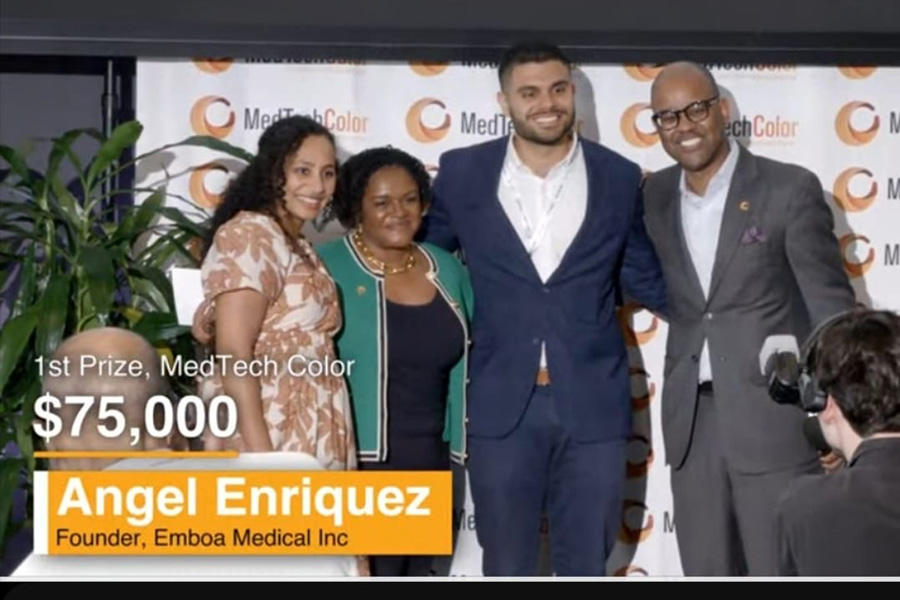Engineering Medicine
Collaborating to propel innovations that transform patients' lives
As medicine becomes increasingly precise and data-driven, engineering is growing ever more critical in solving the world's pressing healthcare problems. The need and potential for life-changing medical diagnostics and treatment devices have never been greater. But developing optimal approaches and translating lab discoveries into real-world solutions can pose challenges - unless key stakeholders work together.
To accelerate breakthroughs at the engineering-medicine intersection and elevate their impact, Purdue University's Engineering-Medicine initiative is driving powerful collaboration among engineers, clinicians and life sciences companies. Partners in the initiative's ecosystem include Indiana University School of Medicine and medical device company Cook Medical, both of which, along with Purdue, form the Crossroads Pediatric Device Consortium.
We combine our engineers' problem-solving skills and research prowess with the unique perspectives and talents of professionals who directly understand patient, provider and market needs. Academic and industry partnerships also underpin innovative cross-disciplinary education programs that prepare the future workforce for closer engineering-medicine integration. Robust academic, clinical and industrial ties foster experiential learning and thriving technology development and implementation.
Indiana University (IU)

A unique collaboration between Indiana University School of Medicine and the Purdue University College of Engineering leverages the strengths of two premier research institutions to lead inter-disciplinary educational programs and translate laboratory discoveries into life-saving medical products. Situated within the world-class life sciences sector in Indiana, the largest medical school and the largest among the top ten engineering schools in the United States partner to innovate graduate training and to generate solutions to healthcare challenges.
Crossroads Pediatric Device Consortium

Purdue University, the Indiana University School of Medicine and medical device company Cook Medical are focusing a new alliance on clinical needs in pediatrics with a simple mantra: Infants and children are not scaled-down versions of adults.
News & Events

Matthew Waninger, Ph.D., has joined the Weldon School of Biomedical Engineering as the inaugural Managing Director of the Crossroads Pediatric Device Consortium
May 22, 2024

Postdoctoral researcher wins pitch competition for device to remove stroke-causing blood clots more efficiently
April 16, 2024

3 Goodman Campbell physicians begin appointments at Purdue's Weldon School of Biomedical Engineering
April 11, 2024


